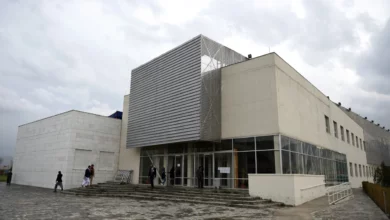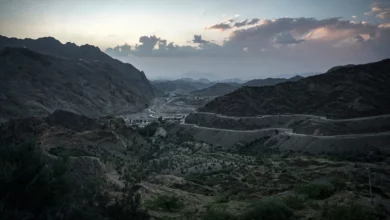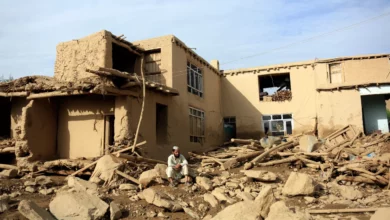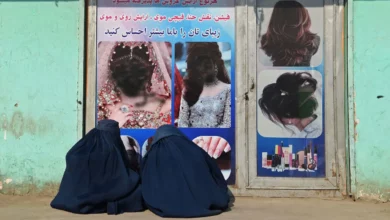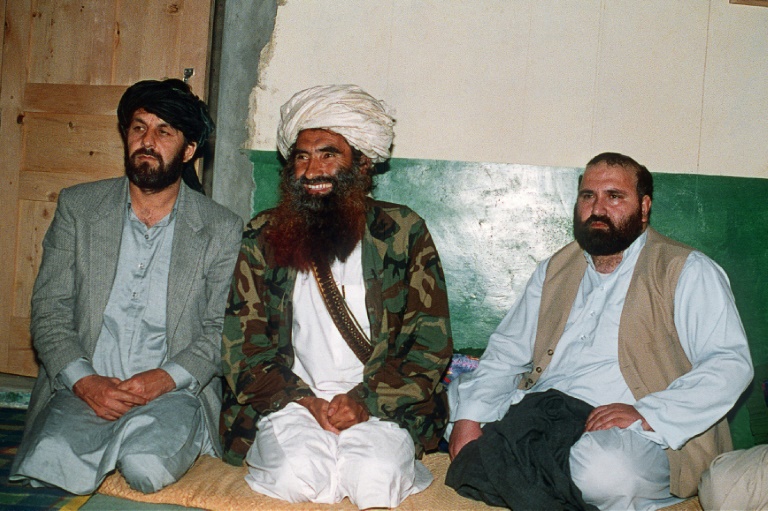
The founder of the Haqqani network, one of Afghanistan’s most effective and brutal militant groups, has died after a long illness, their affiliates the Afghan Taliban announced Tuesday.
Jalaluddin Haqqani, a one-time CIA asset whose group became a top US target, spent decades working with groups such as Al Qaeda and the Taliban to entrench jihad in the conflict-racked region.
Despite his fearsome reputation, his death is not expected to have an impact on the extremist group’s operations.
Jalaluddin, thought to be in his 70s or 80s, had been bedridden for years and had already passed the leadership to his son Sirajuddin, who is also the Taliban’s deputy leader.
Jalaluddin “was from among the great distinguished Jihadi personalities of this era”, the Taliban said in a statement posted on Twitter.
He “was ill and bedridden for the past several years”, the group added.
It did not specify where or when he died. Unverified reports have placed him in Pakistan in recent years.
During the 1980s Jalaluddin Haqqani was an Afghan mujahideen commander fighting the Soviet occupation of Afghanistan with the help of the US and Pakistan.
He gained fame for his organisation and bravery, garnering attention from the CIA and a personal visit from US congressman Charlie Wilson who helped secure arms for the mujahideen.
A fluent Arabic speaker, Jalaluddin also fostered close ties with Arab jihadists including Osama bin Laden who flocked to the region during the war. Later, Jalaluddin became a minister in the Taliban regime which took power in Afghanistan in 1996.
There had been rumours of his death before, in 2008 and 2015, though this was the first time the Taliban have issued a statement on it.
Devastating attacks
The Haqqani network has been blamed for spectacular attacks targeting civilians, Afghan and US-led NATO forces across Afghanistan since the Taliban were toppled from power in 2001.
However Afghan and foreign analysts and diplomats played down the significance of Jalaluddin’s death for the group’s operations.
Analyst Michael Kugelman of the Wilson Center in Washington tweeted: “Given how long he’d been ill, his death won’t have a big impact on the war.”
“His death is not going to affect the network or Taliban operations because he was not an active member,” Afghan political analyst Atta Noori told AFP.
“He was too old, sick and in bed for years.”
The Haqqanis, suspected of links to Pakistan’s shadowy military establishment, were described by US Admiral Mike Mullen in 2011 as a “veritable arm” of Pakistani intelligence.
Washington has long pressured Islamabad to crack down on militant groups, particularly the Haqqanis. On Saturday the Pentagon announced it was cancelling $300 million in aid to Pakistan because of its lack of “decisive” action.
But Jalaluddin’s son Sirajuddin was running the network “with major ISI involvement”, a foreign diplomat in Kabul told AFP, referring to Pakistan’s Inter Services Intelligence.
“I doubt anything will change,” he said.
Designated a terrorist group by the US, the Haqqanis are known for their heavy use of suicide bombers, indiscriminately killing Afghan civilians and security forces.
They were blamed for the devastating truck bomb in the heart of Kabul in May 2017 that killed around 150 people — though Sirajuddin later denied involvement in a rare audio message.
The network has also been accused of assassinating top Afghan officials and holding kidnapped Westerners for ransom.
They include the Canadian Joshua Boyle, his American wife Caitlan Coleman, and their three children — all born in captivity — who were released last year, as well as US soldier Bowe Bergdahl, who was freed in 2014.
In Kabul, the group is widely believed to have been behind many of the recent attacks on the capital that were claimed by the local wing of the Islamic State group.
Some analysts believe it works with IS — which at the same time is involved in a bloody turf war with the Taliban — to avoid blame and political blowback.

